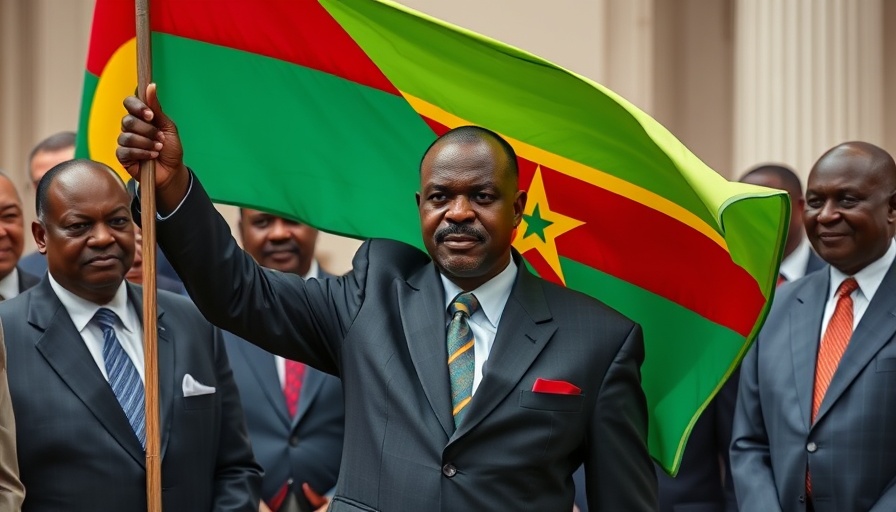
Historic Approval for Peace in Mozambique
The recent unanimous approval of a landmark law by Mozambique's parliament marks a significant turning point for the nation. This legislation, aimed at restoring peace after years of conflict, not only revises elements of the Constitution but also redefines the powers of the presidency.
In 'Mozambique's parliament approves landmark law to restore peace', the discussion dives into crucial developments in the nation's journey toward stability, prompting deeper analysis of its future implications.
Contextualizing the Crisis
For Mozambique, the push for peace has been long and arduous. Historical tensions have often erupted into violence, with recent protests led by opposition figures, resulting in tragic losses—around 360 lives over a span of five months. This recent legislative action, rooted in a political agreement, stems from ongoing discussions that began after the 2022 general elections, which were marred by allegations of electoral fraud and subsequent protests.
The Role of Key Political Figures
Significantly, February 23 marked the first meeting between former presidential candidate Venio Mandlin and Daniel Chapo, a dialogue that was pivotal in articulating a commitment to cease hostilities. Mandlin, who has vocally disputed the legitimacy of the recent elections, now faces the challenge of holding the government accountable while navigating the socio-political landscape that has deeply divided the citizenship of Mozambique.
Analyzing the Implications
This legislative approval bears promising implications for both national stability and governance reform. By redefining presidential powers, the law seeks to foster a more balanced approach to leadership and decision-making within Mozambican governance. This could serve as a framework for accountability and transparency that engages citizens actively in the political discourse.
Reflections on Democratic Practices
The deliberative process leading to the approval of the new law reflects an essential democratic exercise. In a region often challenged by autocratic governance and political violence, Mozambique’s commitment to forging a more stable and peaceful environment stands out. Understanding how this new measure fits into broader regional democratic practices is crucial.
Keeping an Eye on Progress
As Mozambique embarks on this new chapter, the world will be watching closely. The strength of democracy rests not merely on the passage of legislation but on its implementation and the commitment of leaders to uphold the principles of peace and justice. In this dynamic context, the international community plays an essential role in providing support and observing developments.
A Call for Citizen Engagement
The enactment of this law invites a broader conversation amongst citizens about their roles in upholding democratic values. As professionals in diverse sectors, there is an opportunity to contribute to dialogue around governance, policy development, and civic responsibility that transcends borders.
In conclusion, the approval of the peace restoration law remains a hopeful beacon for Mozambique as it endeavors to heal from past wounds and build a prosperous future. The road ahead will demand diligence, but the potential for positive change is strong. As stakeholders within the African landscape reflect on similar struggles, Mozambique’s journey might lead to invaluable lessons on resilience and the importance of governance rooted in peace.
 Add Row
Add Row  Add
Add 




Write A Comment